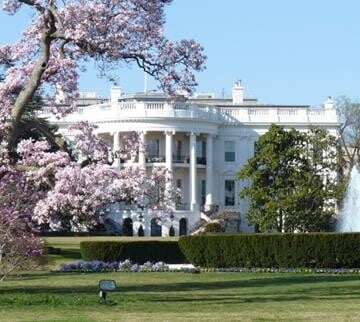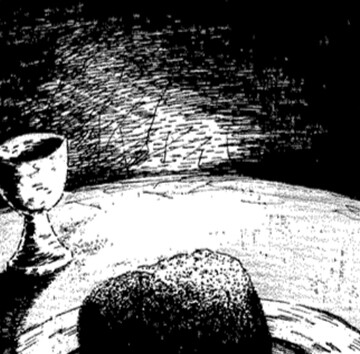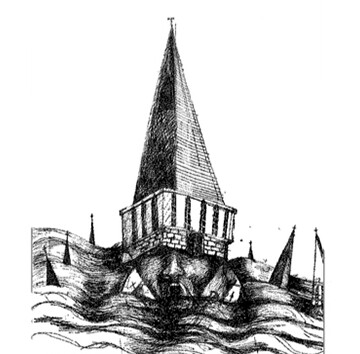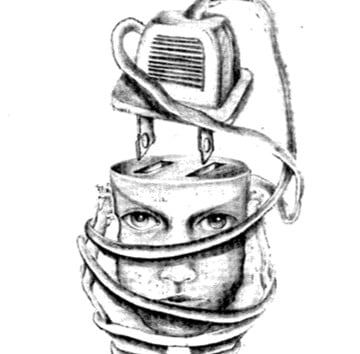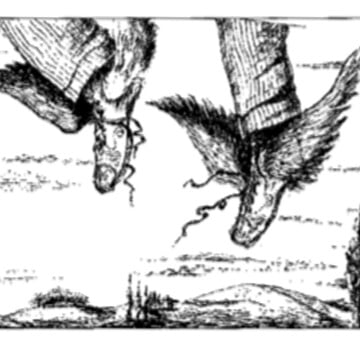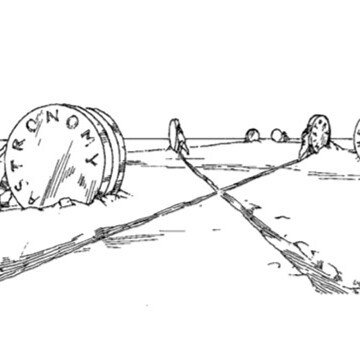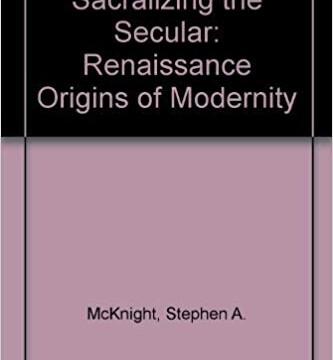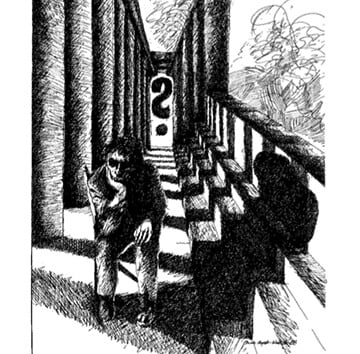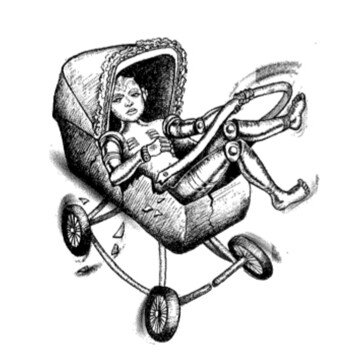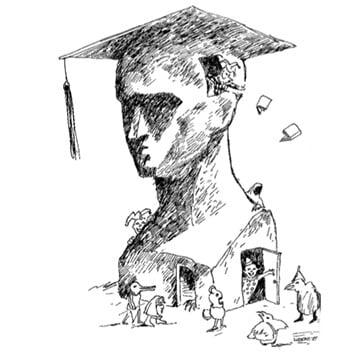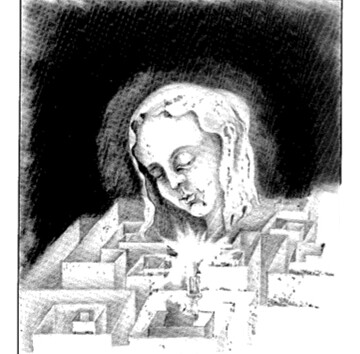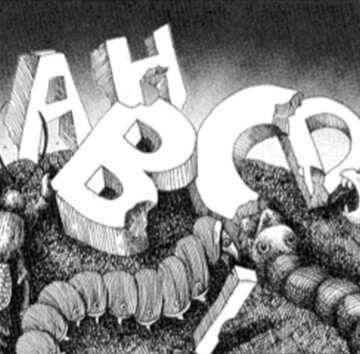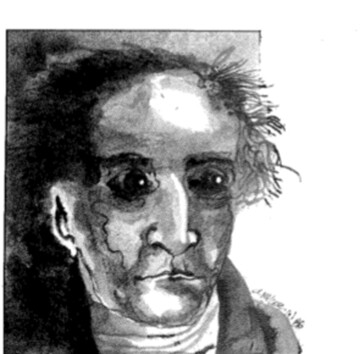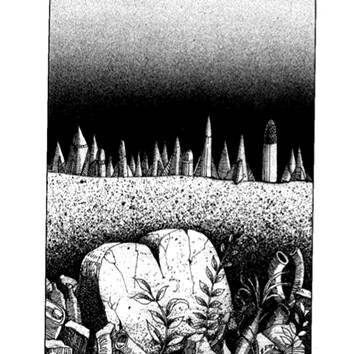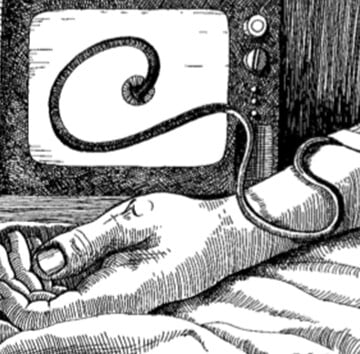From the December 1994 issue of Chronicles. “Democratic capitalism” equals political correctness for the neoconservative. It is a term at least as ubiquitous on these shores and on others as McDonald’s, Coke, and Disneyland. It is the “Sesame!” that opens doors as well as markets and whose usage, planet-wide, is becoming as offensive and boring...
Author: Thomas Molnar (Thomas Molnar)
The Rise of the Profane
From the December 1996 issue of Chronicles. At some point in their development, civilizations cease believing in the sacred and plunge into a new set of absolutes. No community likes to speak of decadence and its usually harsh symptoms; no one may even grasp the meaning of such an upheaval. Yet new absolutes appear on...
Church and Democracy
There is no documentary evidence of any period in the history of the Church when dignitaries such as bishops would have been “democratically” elected by the assemblage of “voters.” On the other hand, popular election was never excluded in the form of acclamation. A famous ease of acclamation was that of St. Ambrose, bishop of...
Art Restoration: The Sistine Chapel
The present controversy around the restoration of the Sistine Chapel’s ceiling prompts the following reflections on restorative work in general, and that of our time in particular. Our age will be known by future historians as one in which all certitudes were questioned, while the True and the Good were on the defensive. Beauty, also...
Back in the News
School uniforms are back in the news. The school board of the nation’s largest school system, that of New York City, voted unanimously this March to recommend uniforms for elementary school students. President Clinton endorsed the notion, though Norman Siegel, executive director of the New York City Civil Liberties Union, predictably threatened to sue if...
Frederick Wilhelmsen, R.I.P.
Frederick Wilhelmsen (1923-1996) is still revered in Catholic circles of the Hispanic world, where he is praised as a friend and a scholar and a kind of honorary Spaniard, and to crown it all, an incarnation of Don Quixote. The latter title has been awarded to him in a noble sense: fighting impossible battles, following...
The Rise of the Profane
At some point in their development, civilizations cease believing in the sacred and plunge into a new set of absolutes. No community likes to speak of decadence and its usually harsh symptoms; no one may even grasp the meaning of such an upheaval. Yet new absolutes appear on the horizon which seem to be barbarous...
The Fukuyama Decade
The Fukuyama-decade continues on—history has ended, all is well in the cosmos, and the New World Order is functioning well. We had, some 30 years ago, an advance confirmation of our smooth sailing in Senator Fulbright’s book on The Arrogance of Power. The United States, he wrote, is not an empire and rejects all imperialistic...
A King for France?
Kings and dynasties seemed to be buried and forgotten when two recent events revived interest in them. On a frivolous but historically significant level, it was the series of scandals of the House of Windsor that brought Europe’s ruling families brutally in the limelight. The general trend of desacralization is voracious for frequent feeding, and...
The Twilight of the Sacred
At the center of the contemporary pagan/Christian controversy are the nature, the localization, and the psychological-mythological motivation of the sacred. The last one dominates the debate because as the transcendent God becomes less focused the sacred turns into a basically human domain. The question, no longer addressed to heaven, is not over how God communicates...
Left and Right in Eastern Europe
Not much can be understood about the new role of the political left and right in Eastern Europe without taking into account two fundamental factors, generally ignored by both critical and enthusiastic observers of the post-1990 years. One is the historic trauma of the five-century-old division of Europe into two halves, effected by the Turkish...
When East Meets West
With every passing day the Eastern European countries are absorbed and integrated into Western-sponsored international institutions—the U.N., NATO, the European Union, the World Bank, etc. For Warsaw, Prague, Bratislava, Budapest, and Kiev, the West represents the light at the end of the tunnel, the gate to salvation. It is funny (tragic) to see: while the...
Democapitalism
“Democratic capitalism” equals political correctness for the neoconservative. It is a term at least as ubiquitous on these shores and on others as McDonald’s, Coke, and Disneyland. It is the “Sesame!” that opens doors as well as markets and whose usage, planet-wide, is becoming as offensive and boring as “international proletariat” and “socialist realism” used...
Justice and Its Harvesters
Nobody, except the New York Times and its worldwide allies, questions the right and duty of Catholic bishops to raise their public voice on moral issues, and on social issues intertwined with problems of a moral nature. Admittedly, pastoral letters, monita, even encyclicals sound rather hollow today, like trumpets in the desert, laments in a...
Polarizing Attitudes
In South Africa the negotiations between F.W. de Klerk and Nelson Mandela and the subsequent election of the latter as president had an unexpected and wholly unknown prelude. In 1969, I was teaching at South Africa’s University of Potchefstroom, the very center of Afrikaner conservative forces. I was the only non-Boer professor in a Boer...
Culture vs. Colonization
Eastern Europe’s adversary today, now that communism is dead, is the melange of brutal liberalism pouring in as an ideological menace from America. Those who will shape the new Eastern Europe want very much a renewal of cultural links with the West, but they already sense that a severe selection will have to be effected...
The Ideology of Technology
The technological age has been in gestation since the late Middle Ages, when the Sorbonne professors (Oresme, Buridan), the Catalan Ramón Lull, and the German Nicholas of Cusa directed their quest away from the Scholastic philosophy of essences toward a method that explores relationships. This quest was at the heart of modernity, and for centuries...
Communism, Nationalism, Liberalism
I chose the three words in my title because they summarize the situation in Eastern Europe, a situation simple yet complicated, tragic yet full of hope. I apologize for the cliches, but they become more profound as this article proceeds. Notwithstanding those who advertise the “clear and present danger” of a communist comeback (and who...
Céline and French Reactionary Modernism
Reactionary literature in France today—as opposed to earlier varieties, for example the romantic, two centuries ago—is distinguished by its despair, its radical style, its exploration of new worlds, its almost science-fiction approach to life and letters. Its most powerful motive is unquestionably despair: of democratic vulgarity, the machine civilization, the social monotony that spreads over...
The Forum and the Faith
When in Rome, one should first try to see it as a city like any other. Easier written than done when one’s hotel is just behind the Pantheon and in its walls there are plaques commemorating that General San Martin, Bolivar’s fellow liberator, lived there, and that Stendhal worked on his Memoires in one of...
Disneyland and the Real World
During a recent lecture tour I had occasion to reacquaint myself with the Pacific Northwest, where I used to teach some thirty years ago. The region offers lessons in the difference between American conditions and economic management and most of the rest of the world, to which the New World Order promises paradise: democracy, capitalism,...
History Lessons
As I write I have in front of me a number of statements, articles, and conference projects—and more are coming to my attention almost daily—indicating what amounts to an invasion of Eastern and Central Europe by Western zealots, do-gooders, investors, gurus, and sharks. They emanate from American and West European offices, banks, institutes, universities, and...
Europe Is Not What It Seems
It would be logical for me to say that, returning to the United States after another four months this summer and fall in various countries of Europe, east and west, I found a great many misconceptions about the continent in American media and public opinion. Yet it would not be fair to limit myself to...
A Difficult Road
Over the course of a one-month (April) trip through five European countries, Eastern and Western, I collected notes of many conversations, particularly with young people, about their view of what is called over there “the situation.” A more concrete term should not be used since not even the leading quattuor, Gorbachev, Thatcher, Mitterrand, and Kohl,...
The Teaching of Humanities and Other Trivia
“Humanities” is Western society’s name for the academic expression of its fundamental values. There are other branches of learning—medicine, law, engineering, and business, all of which benefit from the humanities—but only the “liberal arts” reflect a society’s soul, central beliefs, highest aspirations, and ultimately its culture. Yet during the last half-century America has witnessed the...
Apartheid
Apartheid is the sole issue ever discussed in this country with regard to South Africa. Readers and viewers must occasionally ask themselves whether that huge and varied country, with almost four times the area of France, presents really nothing but a two-dimensional picture, without any depth, any culture, any search for identity in a truly...
A Future for Europe
Political scientists are now grumpy. Instead of waxing enthusiastic about the 40 days that shook the world—let us say from the crumbling of the Berlin Wall to Ceausescu’s execution—they resent the brutal intrusion of reality on their slumber. It used to be so comfortable to think in terms of superpower pseudo-polarity, and global democratization is...
Notes on Art Patronage
Art patronage has had a long, uneven, and agitated history, and ideas about it appear to have long ago been settled: we call “great ages” those with intellectual and artistic brilliance, and we also add that these achievements were largely public, since taste and splendor were manifested first of all in buildings, churches, town halls,...
The Terrestrial God
It all depends on what we mean by “sacralizing” and “sacred,” and to a lesser extent by “secular.” The fact that Professor McKnight is a student of Eric Voegelin should not be left unmentioned in this regard, because for the recently deceased great scholar, “sacred” remained an elusive term. The word certainly referred to a...
What Makes a Nation?
When Fernand Braudel died in 1985, The Times of London called him “the greatest of Europe’s historians.” In spite of Braudel’s great merits, many would question this accolade. Indeed, he may be assigned a place among those contemporary historians who justify, by their oeuvre, the sociological school, and who therefore have “betrayed” the historian’s true...
New Thoughts on the French Revolution
François Mitterrand’s socialist administration has become so scandal-ridden and financially precarious that the year-long celebration of the revolution’s bicentennial is now nothing but a hypocritical farce. Yet Mitterrand’s reference to 1789 is an ideological obligation, since the “leftist myth” is the number one legitimizing factor that makes the regime credible in the eyes of a...
Kingdoms of the Future
The invitation to the first symposium came from my old alma mater, the Free University of Brussels, founded by liberals, freemasons, and socialists, all united in their opposition to the Catholic Church, embodied by the 15th-century University of Louvain. Nostalgia drove me to the once well-known quartiers, or rather what remains of them now that...
Intellectual Operator
It is a distinct possibility that we leave to posterity writers and works from which the future curious will conclude that this century was the stupidest, most verbose and obscene, altogether the worst in the historical record. What else can you say of a century that elected Michel Foucault as one of its mâitres à...
Golden City Blighted
It’s a tale of two cities. There is the Prague that travelers meet as they enter: an endless succession of socialist concrete apartment houses, socialist sportsfields, socialist parks with socialist cement statues. The hotel we inquired about was unknown to most socialist passersby, and when we finally reached it, we found a modern concrete block,...
Schools Then and Now
The present agitation around Allan Bloom’s book, The Closing of the American Mind, reminds me of the many similar debates I have witnessed in this country during the last four decades. At almost regular intervals the mediocrity of our system of education, from grade school to university, is demonstrated, denounced, deplored, and pilloried. Committees are...
Selling Heidegger Short
In Martin Heidegger’s existentialism, two centuries of German philosophy have culminated in an unexpected, almost scandalous way. Since Immanuel Kant, at least, this philosophy was bent on finding proofs that Being is unknowable, or that it is not God but the World Spirit, History, the Will to Power, the Proletariat, whatever. Heidegger went back to...
Whose Man in Haiti?
Whose man is in Haiti? He was 40ish, of medium height, powerfully built on the way to being stout, and with an obvious gift of speech—he overrode his listeners, particularly since they were in their early and late 20’s. He was Leslie Manigat, the place was Caracas, and I was a guest lecturer and full-time...
Reinterpreting Philosophy
To paraphrase a well-known saying, We are all revisionists now! Yet somehow even our revisionists are timid—they wait for favorable winds before they “revise” history, economics, philosophy, and science, then write books about “how it really started,” “how it really happened.” I suspect that revisionism is a branch of popularized hermeneutics whose self-assigned function is...
Technology and the Ethical Imperative
There is a very interesting article by Professor David Levy in the February 1987 The World & I, which deserves a further meditation on the issue it raises. Two thinkers provide Levy with his point of speculative take-off: Arnold Gehlen (Man in the Age of Technology) and Hans Jonas (The Imperative of Responsibility). Their fundamental...
Universities and Students of South America
By 1921, a few years after the Bolshevik revolution, students at Argentine universities had begun to agitate for equal rights with professors and were demanding the same rights for the cleaning staff. It sounds like the spring of 1968 in Paris and Columbia University, but in South America it was old stuff by then. Students...
Notes on Art Restoration: The Sistine Chapel
The present controversy around the restoration of the Sistine Chapel’s ceiling prompts the following reflections on restorative work in general, and that of our time in particular. Our age will be known by future historians as one in which all certitudes were questioned, while the True and the Good were on the defensive. Beauty, also...
Prurient Puritans
These apparently very different books—a cultural history and research on American sexual mores—actually address the same issue: the attempt to reconcile morality and the sexual impulse. A typically puritanical endeavor, because the puritan, with his eternal bad conscience about things that may not please God, that is sin, goes through mental, moral, and behavioral contortion...
About the University and Its Curriculum
The sociological thesis that education is “for society” is acceptable today because in this statement, “society” is a sufficiently vague term to prescribe fewer and fewer binding guidelines as we ascend from lower to higher education. The thesis becomes unacceptable when an ideological restriction is added: The school must be a small replica of society....
Rice Paddies and Tea Houses
The schedule is rather monotonous for a lecturer invited to the big cities where universities are usually located. First comes the airport, then the car with the polite, smiling young man as a guide, then hotel room and restaurant, podium, introduction, photo graphs, the lecture itself-then the whole thing in reverse order the next day....
The Search For the Sacred
Religion is inseparable from the sacred, the channel through which the divine transcendent communicates with man, according to man’s sensate nature. Any object, natural or man-made—a Gothic cathedral or the lapis negra excavated on the Roman forum—may assume the character of sacredness. Through it, the divine communication becomes incarnated, and, in the intellectual-rational order, verities...
The Anatomy of Clichés
Let me begin by paying tribute to the Unimaginative Man without whose clichés words would have only one-the correct-meaning. (This is at least what my professor of linguistics in Brussels taught us: There are no synonyms; every word has a distinct meaning.) Picture yourself in a world without the Unimaginative Man: History would come to...
Simple Goethe
Last summer, I read simultaneously Goethe’s Dichtung und Wahrheit, his autobiography up to the time of writing Werther, his collected travel diaries, and his life by Emil Ludwig. Of the three biographical works, my unhesitating judgment is that Ludwig’s book is the disappointment: it compares to Goethe’s own narrative of his youth as the description...
War, Peace, and the Church’s Teaching
The amazing thing about the nuclear debate and the Catholic bishops’ participation in it is that the accumulated wisdom and experience of mankind, as well as the Church’s pronouncements on peace and war, are so completely ignored. This is quite a natural phenomenon on the part of so many lay debaters: it belongs also to...
The Ideological Temptation of the Media
There have been, in recent decades, two focal points around which radical, utopian ideologies could concentrate. As a result, these two focuses-labor unions and youth-were surrounded by a veritable cult, and they acquired power, both political and cultural, even though the second of the two focuses was not, as such, organized, let alone structured. Power...
Letter From Budapest
Observation of intellectual life in Hungary today provides a fascinating picture of a nation living in two worlds and, in certain ways, profiting by both. “East” and “West” become suddenly realities, cultural as well as political. Soviet occupation has compelled the intellectuals to study Marxist writings, in fields where their Western colleagues, even the leftist...


